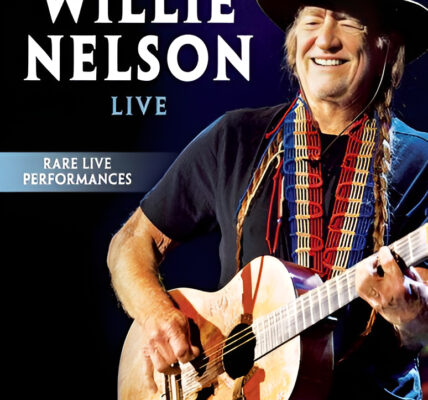Waylon Jennings’ “Revelation”: The Quiet Soul of Outlaw Country
Waylon Jennings is often celebrated as the face of outlaw country—a figure defined by grit, rebellion, and the defiance of Nashville norms. Yet nestled within his 1972 album Ladies Love Outlaws lies a song that reveals a more vulnerable side of Jennings: “Revelation.” Written by Kris Kristofferson, the track is a profound meditation on faith, redemption, and the human struggle for meaning, standing in stark contrast to the barroom ballads and back-road anthems that dominate the album.

Unlike the defiant swagger of tracks like the album’s title song, “Revelation” feels like a quiet conversation—a prayer set to music. Jennings’ delivery is hushed and intimate, carrying a sense of weariness that suggests the weight of lived experience. There’s no showmanship here, no posturing; it’s just a man confronting his own imperfections and seeking clarity in a world that often feels chaotic. The vulnerability in his voice underscores the emotional honesty at the heart of the song, offering a glimpse into Jennings’ inner life that few other tracks do.

The arrangement mirrors this simplicity. Acoustic guitar, understated rhythm, and sparse instrumentation create a sonic space where the lyrics can breathe. Every note, every pause, allows the listener to feel the weight of the words. It’s a song crafted not for commercial success or radio play, but for reflection—one that resonates on a deeply personal level. “Revelation” is a reminder that even the most hardened spirits carry doubts, longings, and a need for grace.

Positioned alongside the more aggressive, rebellious tracks of Ladies Love Outlaws, the song functions as a poignant counterbalance. It highlights the duality of Jennings’ artistry: the fearless outlaw who could dominate a stage, and the introspective soul searching for meaning beyond fame and rebellion. In this context, “Revelation” is not a detour—it is central to understanding the depth behind the legend.
Ultimately, “Revelation” transcends its religious undertones. It is a song about humanity itself, capturing the universal struggle to find purpose and peace amidst life’s chaos. In Waylon Jennings’ hands, the song becomes more than a ballad—it is a confession, a meditation, and one of the most moving moments on an album that helped redefine country music forever.
“Revelation” proves that even in the world of outlaws, there is room for reflection, humility, and the quiet search for truth.




